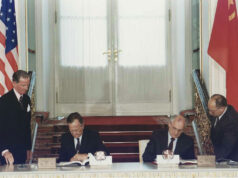By Tony Samson
IT is customary to compliment someone not seen for many years and almost forgotten (don’t tell me you don’t know who I am) with the ready greeting: “Hey, you haven’t changed.” Is this a flattering remark? Maybe the greeter has used the aging app to approximate how a former classmate is supposed to look now? The present apparition is not at all gaunt and withered, with caved-in cheeks — yes, a bit plumper.
It is inappropriate to use this greeting in the following situations: a) when the one being addressed is a teenager whose last sighting was just after birth; b) she has lost sixty pounds from having been devastated by some dreaded disease of which the flatterer is unaware; and c) she has had a gender change or an extreme facelift that has given her a snake-like head — where’s the toilet?
Predictably, the one addressed as unchanged, and presumably as youthful-looking as ever, returns the compliment with the same line — you haven’t changed either. (You still look like the “before” poster for a fitness center.)
The observation of unchanging appearance hints of a still recognizable mien, free of the ravages of age. A more realistic encounter for two acquaintances meeting by chance after decades is the scene from a short story by Alice Munro, a Nobel Laureate. Two former classmates from high school, now quite advanced in age meet up as dentist and patient. The woman, sitting on the chair and being administered to, suddenly recognizes her dentist as a long-ago crush in high school. She is shocked at how ancient her former classmate now looks, with a much-wrinkled face showing little of the hunk-like attributes that attracted her as a teener. She wants to make sure it is him, and queries the dentist on his high school and the year he graduated. Sure enough, he is indeed the person she remembers and reveals to him that they were in the same class. He asks innocently — what subject did you teach us?
Aging people are unaware of how they look to others, especially those who have not seen them in a long time. Looking in the mirror they are oblivious of the multiplying liver spots, wattles, warts, facial tics, and drooping cheeks that make them look like their already deceased parents. The changes are gradual and creep unobtrusively as they accumulate.
It’s only when they have passport photos taken or find themselves in a group photo do the elderly wonder who the old face belongs to. They bestow on others the agelessness of memory even as they expect others to reciprocate with complementary recollections.
The effort to turn back the ravages of age is a bustling business, with encouraging slogans “70 is the new 50.” The promise of youthful looks is promoted by fitness centers, cosmetics, health foods, and the purveyors of surgical enhancements. (Your eyebags need to be checked in.) Billboards showing “before” and “after” treatments can be dramatic. Still, even with work done, it is the wrinkly neck and hands that trigger the age alert.
Perhaps it is best to do away with the casual greeting of not having changed over the years. It’s best to skip this courtesy and just jump into small talk about other acquaintances that have been lost track of. Physical appearances, especially for those enjoying good health allowing for occasional aches and pains, are best left unremarked.
It is happiness and the banishing of hatreds and anxieties rather than the mark of the years past that should invite good wishes. Few will deserve the encomium bestowed by Shakespeare on Cleopatra through the character Domitius (in Antony and Cleopatra). Of her, he intones “age cannot wither her, nor custom stale her infinite variety”. Note here that it is variety and not resistance to change that provides the allure. Anyway, Cleopatra died young at 39 from the sting of an asp she herself put on her bosom. (Yes, you also saw the movie.) So, the physical effect of long years was not really tested.
For someone who has been missed for so many years, a straightforward and neutral greeting will serve: hey, you’re still alive. And a riposte in the same vein can be offered — you only look dead, but you’re still breathing. This is a good opener for talking about those who didn’t grow old gracefully… or didn’t have a chance to.
Tony Samson is Chairman and CEO, TOUCH xda.



